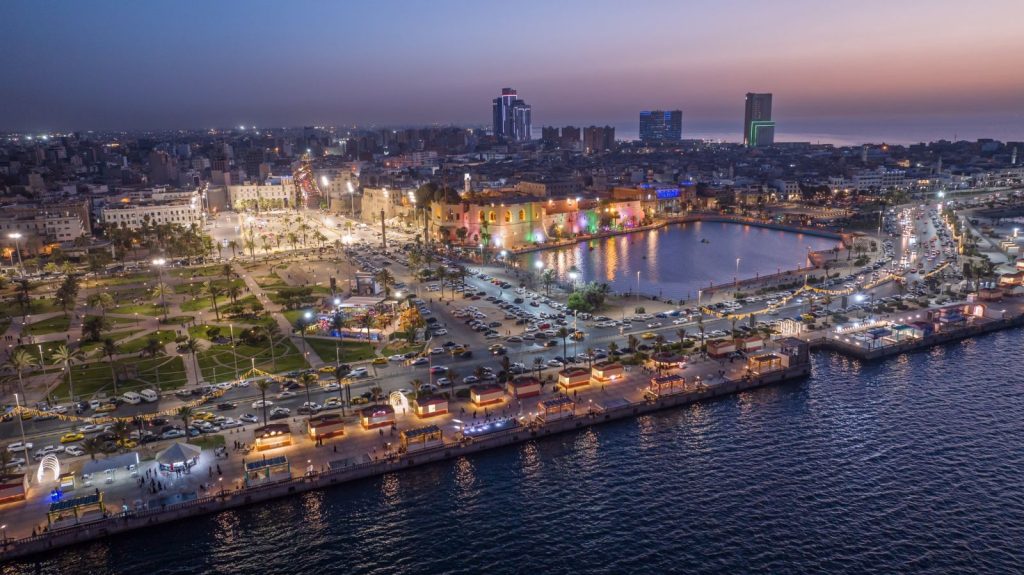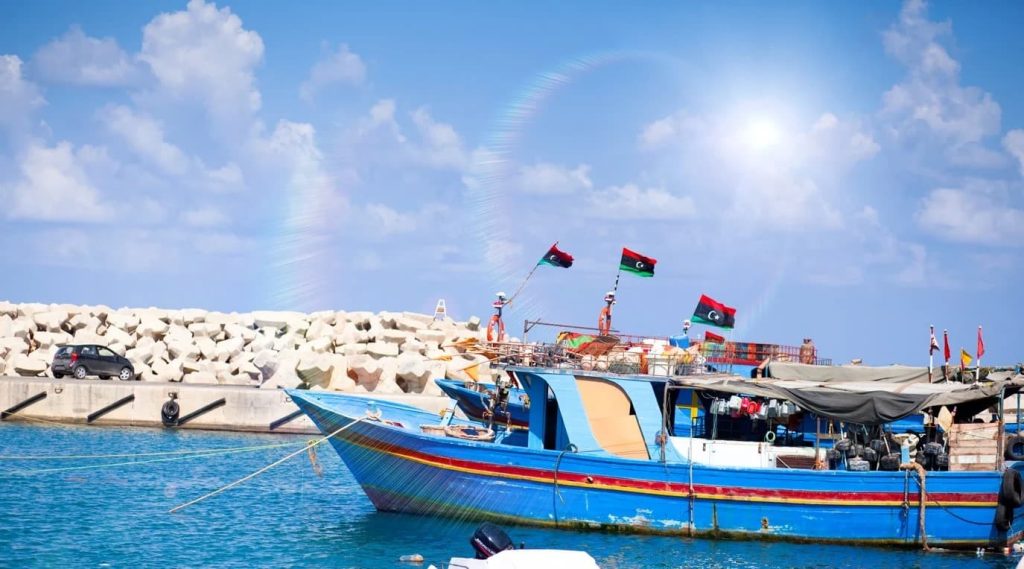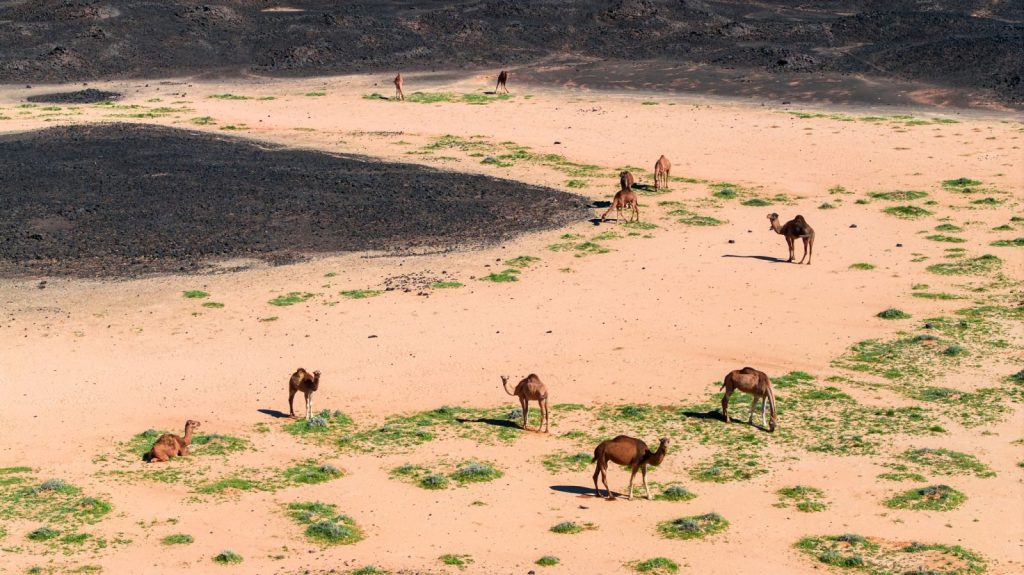In the ever-evolving landscape of global finance, sovereign wealth funds play a crucial role in shaping economies and securing future prosperity. The Libyan Investment Authority (LIA) stands as a testament to this, representing one of Africa’s largest sovereign wealth funds. Established to manage Libya’s vast oil revenues, the LIA aims to diversify the nation’s wealth and ensure long-term economic stability.
As we navigate through the complexities of international investments, understanding the LIA’s strategies and challenges becomes essential. With its diverse portfolio spanning various sectors and continents, the LIA seeks to maximise returns while adhering to ethical standards and sustainable practices. It’s a delicate balancing act that requires careful navigation of geopolitical tensions and market fluctuations.
By examining the LIA’s journey, we gain insights into the broader implications for Libya’s future and the global economy. Let’s explore how this financial powerhouse is shaping not just Libya’s destiny, but also influencing international investment trends.
Table of Contents

Overview Of The Libyan Investment Authority
The Libyan Investment Authority (LIA) plays a critical role in managing Libya’s wealth, being one of Africa’s largest sovereign wealth funds. Established in 2006, LIA’s primary objective is to manage the country’s significant oil revenues. It focuses on diversifying Libya’s wealth to ensure long-term economic stability and sustainability.
LIA’s investment strategy includes a broad range of asset classes, aiming to mitigate risks associated with volatility in global markets. Its portfolio is diverse, spanning several industries and regions to balance opportunities and challenges effectively. The LIA is committed to responsible investing, aligning with international standards of ethical and sustainable practices, even amid geopolitical tensions.
Given LIA’s substantial impact on Libya’s economic landscape, it faces ongoing challenges. These include political instability and fluctuating global market conditions. Despite these obstacles, the authority continues to adapt and implement strategies to secure the nation’s financial future.
In navigating these challenges, consultancy services become crucial for sovereign wealth funds like the LIA. A consulting firm with a strong presence in North Africa and an understanding of the local and global landscape, such as Qabas in Tripoli, could offer invaluable operational, risk management, and strategic guidance. While understated, it’s clear that leveraging expertise in these areas would significantly benefit the LIA in achieving its long-term objectives.

History And Establishment
The Libyan Investment Authority (LIA) was established in 2006 to manage Libya’s oil revenues. Its main goal is to diversify national wealth for long-term economic stability.
Founding And Purpose
In 2006, the LIA came into existence under the General People’s Committee decree. Its primary objective focused on managing Libya’s oil wealth, aiming to lessen reliance on petroleum revenues by investing across a range of asset classes. These investments target various industries and regions to foster sustainable economic growth.
Changes Over The Years
Since its inception, the LIA has undergone significant transformations. Political upheavals in Libya throughout the last decade prompted strategic adjustments in its operations and investments. Governance reforms improved transparency and accountability to meet international standards. Despite challenges, the LIA maintains its focus on ethical investments and sustainable practices.
Our consulting firm, given its extensive experience in the sector, provides firms like the LIA with strategic insights tailored to complex global dynamics. Helping clients adapt to ever-evolving financial landscapes remains a priority, cementing our role as a trusted partner for investment authorities navigating these changes.

Investment Strategy And Portfolio
The Libyan Investment Authority (LIA) represents a significant force in global finance. Its investment strategy, shaped by a diverse portfolio and strategic goals, seeks to secure Libya’s economic future.
Key Investments
LIA’s investment portfolio includes a broad array of asset classes. These cover equities, fixed income, real estate, and private equity. For example, LIA has invested in telecommunications and energy sectors across Europe and Africa. This diversification helps manage risks associated with market volatility, targeting stable returns.
The fund also engages in sustainable investments. Prioritising ethical practices, LIA invests in renewable energy projects and technologies. We see this approach as vital for maintaining long-term growth and social responsibility.
Strategic Goals
Strategic goals guide LIA’s operations. Long-term economic stability for Libya remains the primary objective. To achieve this, the LIA focuses on expanding its asset base and enhancing portfolio resilience against geopolitical challenges. A significant part of this strategy involves transitioning towards more sustainable and impactful investment opportunities.
Improving governance and accountability is crucial. Reforms aim to align with international standards, enhancing transparency and investor confidence. The LIA’s collaboration with experienced consulting firms ensures strategic alignment. Here, Qabas, with its expertise, stands as a potential ally, supporting sustainable growth amidst complexity.

Impact On The Libyan Economy
The Libyan Investment Authority (LIA) plays a crucial role in shaping Libya’s economic landscape. This sovereign wealth fund manages substantial assets and implements strategies that deeply affect various sectors, thereby influencing national economic dynamics.
Economic Contributions
LIA invests in diverse asset classes, including equities and real estate. These investments help stabilise the national economy by enhancing revenue generation and reducing dependency on oil exports. By focusing on renewable energy projects, LIA supports sustainable development and positions Libya as a future energy leader in the region. Moreover, investment returns from diversified portfolios contribute to funding national projects, boosting infrastructure development and job creation.
Social And Political Influence
LIA’s operations impact social and political spheres by fostering economic stability. Its commitment to transparency and good governance aligns with global standards, promoting confidence among international investors. Improved financial management leads to national economic resilience, reducing vulnerability to geopolitical tensions. These efforts by LIA help stabilise the socio-economic environment, addressing unemployment and contributing to social welfare programmes. The influence extends internationally, easing diplomatic relations by showcasing Libya’s commitment to ethical investments and sustainable growth strategies. In this complex landscape, Qabas offers guidance by providing strategic advisory services, instrumental in navigating these multifaceted challenges and opportunities.
Challenges Faced
The Libyan Investment Authority (LIA) encounters several challenges that impact its operations and investments. From governance issues to external geopolitical pressures, these factors shape its strategic direction.
Governance And Transparency
Strengthening governance and transparency remains a priority for the LIA. Political changes in Libya have necessitated reforms to align with international standards. Establishing robust oversight mechanisms ensures accountability and builds trust both domestically and internationally. In this intricate framework, partners specialising in transparent governance, such as consultancy firms, play a crucial role by offering insights and expertise.
Geopolitical Factors
Geopolitical instability affects the LIA’s investment strategies. Regional conflicts and international sanctions pose risks to the fund’s performance. Adapting to these conditions requires nuanced understanding and strategic agility. Consulting firms with a grasp of regional dynamics, like those operating in North Africa, are instrumental in navigating these complexities and enhancing decision-making processes.
Future Prospects
Exploring future prospects for the Libyan Investment Authority (LIA) requires identifying growth areas and developing comprehensive reform plans. These strategic elements ensure the LIA remains pivotal in stabilising Libya’s economic framework.
Potential Growth Areas
Fostering potential growth areas involves strengthening sectors offering high returns. Renewable energy remains a significant focus, with potential projects in solar and wind power. The LIA’s foresight in targeting these sectors aligns with global trends towards sustainable resources. We also see promising advancements in technology-driven industries, where digital transformations can uplift local economies. Incorporating innovative models allows diversification, which reduces economic overdependence on oil revenues.
Further exploration into the financial services sector creates opportunities for regional leadership. By developing infrastructures supporting modern banking and finance technologies, the LIA can propel Libya into a competitive regional position. This, in turn, promotes foreign investment and partnerships that enhance growth.
Reform And Development Plans
Implementing reform and development plans, the LIA outlines strategies addressing transparency and governance. Aligning with international standards ensures credibility and investor confidence. Enhancing these frameworks prevents regulatory pitfalls, safeguarding assets from geopolitical risks.
Central to the reforms is the strategic collaboration with expert consultancy firms like Qabas. By leveraging their expertise in risk and strategy across North Africa, the LIA fortifies its governance structures. This partnership addresses both operational intricacies and provides tailored training programmes, preparing the organisation for complex global dynamics.
In pursuing these development plans, the LIA maximises its role as a national economic stabiliser. With thorough reforms, it navigates challenges in market volatility and geopolitical uncertainty, securing long-term economic prosperity for Libya.
Conclusion
As we reflect on the journey of the Libyan Investment Authority, it’s clear that its role extends beyond mere asset management. The LIA stands as a testament to Libya’s ambition to secure a sustainable economic future amidst complex challenges. By prioritising transparency and ethical investment, it not only strengthens Libya’s financial framework but also positions the nation as a leader in renewable energy and innovation. While geopolitical and governance challenges persist, the LIA’s commitment to reform and strategic collaboration offers a pathway to resilience and growth. Through these efforts, the LIA remains pivotal in shaping Libya’s economic landscape and fostering regional stability.
Frequently Asked Questions
What is the Libyan Investment Authority (LIA)?
The Libyan Investment Authority (LIA) is a sovereign wealth fund established in 2006 to manage Libya’s oil revenues. It aims to diversify the country’s wealth, ensure long-term economic stability, and manage investments across various asset classes, including equities, fixed income, real estate, and private equity.
How does the LIA contribute to Libya’s economy?
The LIA contributes to Libya’s economy by investing in diverse asset classes to stabilise the national economy, enhance revenue generation, and reduce dependency on oil exports. Its investments support national projects, infrastructure development, job creation, and foster economic stability.
What are the LIA’s main investment focuses?
The LIA focuses on ethical and sustainable investments, particularly in renewable energy projects, technology-driven industries, and financial services. This strategic diversification aims to ensure long-term growth, social responsibility, and reduce reliance on oil exports.
How does the LIA address geopolitical and governance challenges?
The LIA addresses geopolitical and governance challenges by implementing governance reforms to enhance transparency and accountability. It employs strategies to navigate geopolitical instability and collaborates with consultancy firms for expertise in transparent governance and regional dynamics.
Why is transparency important for the LIA’s operations?
Transparency is crucial for the LIA as it builds confidence among international investors and improves governance standards. Transparent operations help foster economic stability, enhance national economic resilience, and align with international standards, which are vital for securing Libya’s financial future.
What impact does the LIA have on international relations?
The LIA influences international relations by showcasing Libya’s commitment to ethical investments and sustainable growth strategies. Its transparency and governance reforms enhance confidence among international investors and aid in easing diplomatic relations.
What future prospects does the LIA have for growth?
Future growth prospects for the LIA include expanding investments in renewable energy, technology-driven industries, and financial services. These areas align with global trends and can enhance Libya’s competitive position regionally, ensuring long-term economic prosperity and stability.




